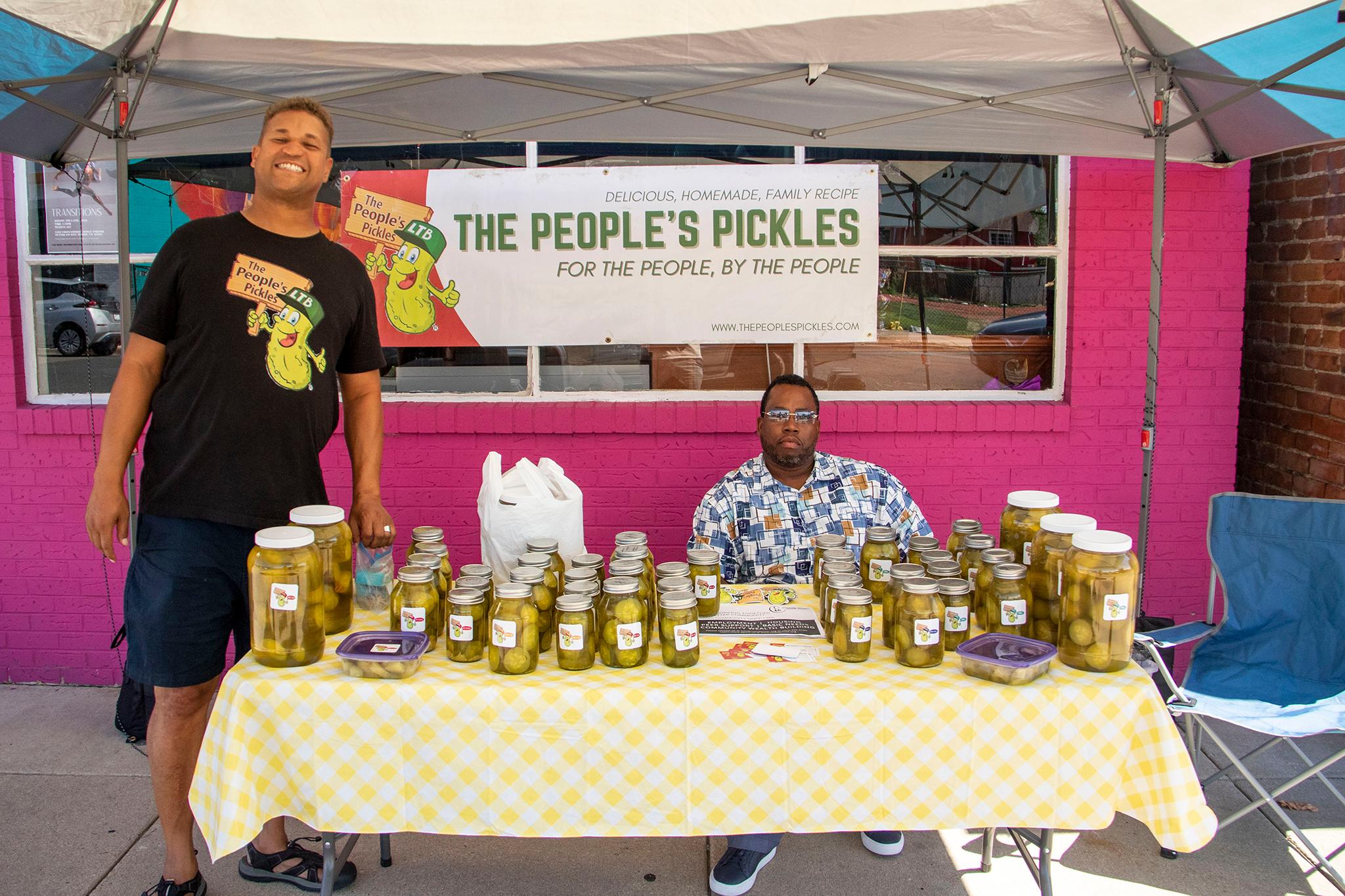Marcus Weaver has had a few second chances in life.
As Weaver puts it, his life has been a "journey," starting in Virginia Beach living with an abusive parent, to moving west and having run-ins with the law.
Now Weaver focuses on helping others get their second chances through his nonprofit, The People's Pickles.
"At first, it was just me and a girlfriend and we would just go to farmers' markets and sell pickles," Weaver said. "Then I started employing guys in the community who were coming out of prison, rehab, homelessness and I got them jobs making pickles. Soon, I'd have them come out with me to the flea markets and then it turned into our original vision. We've become a nonprofit community driven social enterprise."
The People's Pickles is a 30-day transitional job training program for people reentering the workforce, including those who were incarcerated, in recovery or experiencing homelessness. Through the program, participants learn interview skills, resume building, how to present themselves and discuss their past and ultimately, how to run a business.
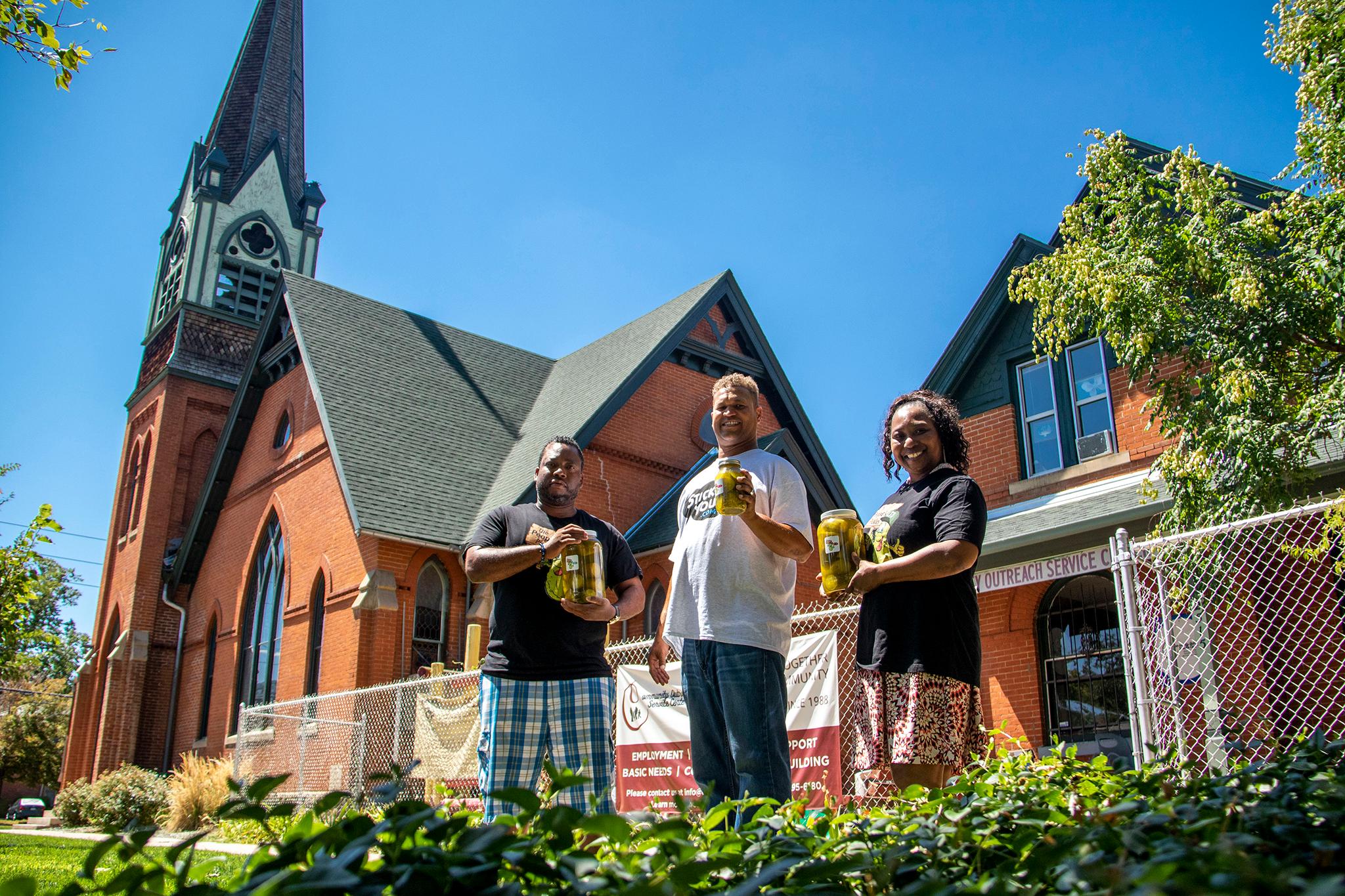
The program is part of the vocational training at the Community Outreach Service Center in Five Points. The Center, run by Eddie Woolfolk and her husband, Pastor Robert Woolfolk, provides wraparound services for those in need, whether they be unhoused or reentering into society.
Weaver is also the deputy director at the Center.
The idea to help those getting back into the workforce and on their feet stemmed from Weaver's own issues.
In 2008, Weaver graduated from radiology school and instead of celebrating his success, he fell into a cycle he said plagues many people of color when they become successful, self-sabotage. According to NPR, Black educated men are more likely to be isolated and constantly feel they have to prove themselves. Weaver said he was unable to handle his success. So instead of pursuing a job in radiology, he started selling drugs.
"I would have success and find a way to ruin it," Weaver said. "I was a dysfunctional adult. Radiology school was a big sign of me getting my life together... I could've gone anywhere I wanted to go and I decided to self-sabotage."
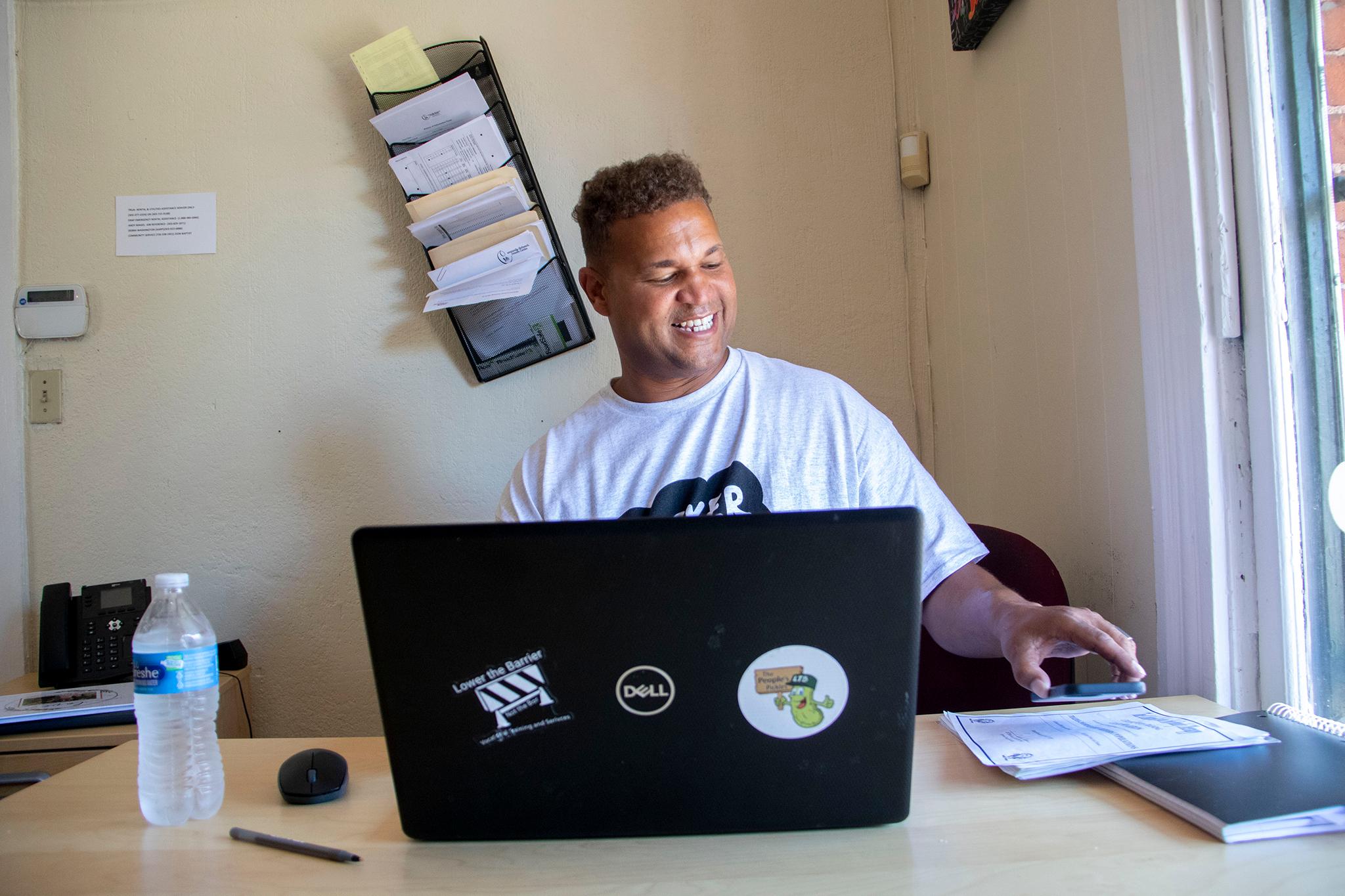
Weaver said his life became hectic and it ended in a high-speed chase with authorities, kidney failure and jail.
But, second chances. Weaver said while he was awaiting trial, he started reading about vocational programs, reading the Bible more, teaching fellow inmates how to write resumes. When it was time to see the judge, Weaver told them he would start a nonprofit to help people who lost their way, just like he did.
The judge believed him and he was given probation.
After that, Weaver said he started working toward building the non-profit he promised the judge. He cultivated his social work skills at New Genesis. He met Hassan A. Latif, who runs the Second Chance Center and started focusing on community wealth building through vocational classes and job placement, especially for those who were formerly incarcerated, in recovery or experiencing homelessness. Weaver later got a job with Bud's Warehouse, a nonprofit job-training program similar to the future People's Pickles.
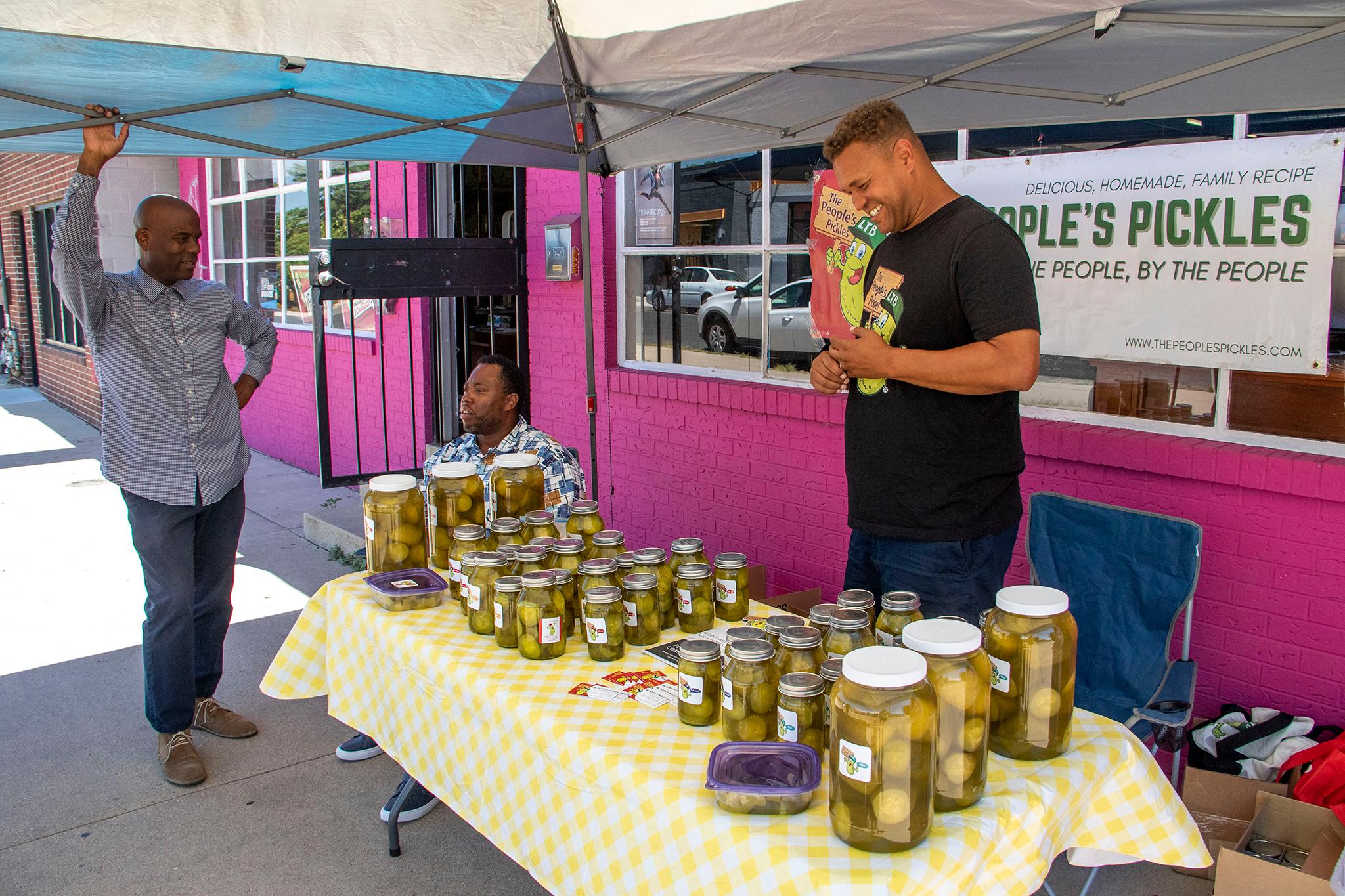
"I wasn't backsliding anymore," Weaver said.
Weaver said things were going well until July 20, 2012. Weaver was meeting a girl at the Century 16 theater in Aurora. The two had similar interests as she was also working on helping marginalized communities. Her name was Rebecca Wingo. That night the Aurora shooting occurred. Weaver was one of the wounded and Wingo was fatally shot.
"It was a dark time," Weaver said. "I was a different person after I left the theater."
Weaver said after the trial, he began visiting family more often, especially in St. Louis. His family are big picklers. Sweet hot pickles. Dill pickles. Garlic dill pickles and hot garlic. Whatever variation, his family made them and then taught him how to make it.
Hence, The People's Pickles was born.
He first ran the program through a nonprofit he helped start called Lower the Barrier. Then he brought it over to the Outreach Center. Besides the People's Pickles, Weaver said the Center offers forklift training, digital literacy classes and soon they'll offer supportive housing on Welton Street called the Charity Houses.
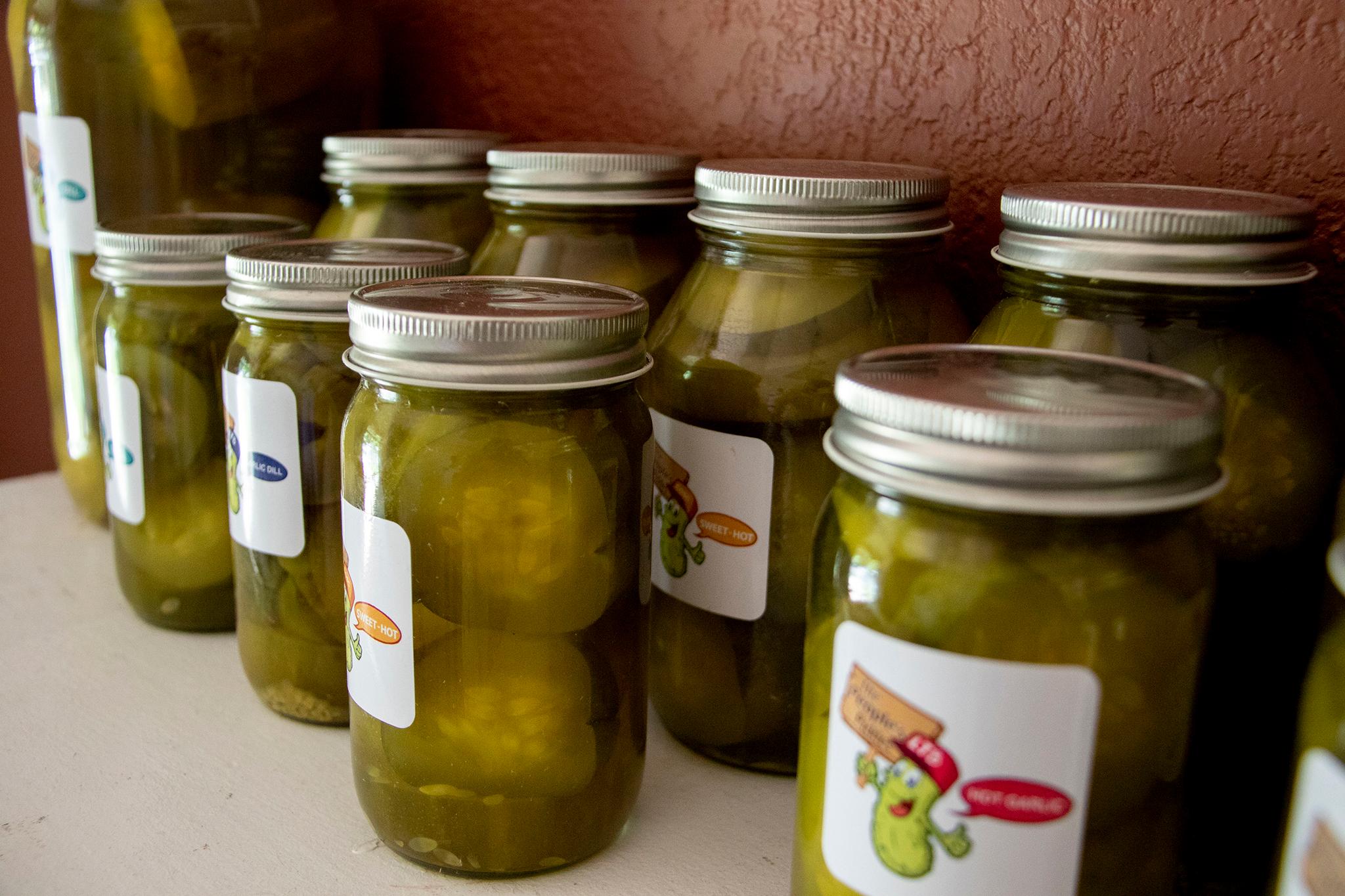
"We want to be everything to everybody," Weaver said. "Whether they're in our pickle program or need an ID or just need counseling. Ms. Eddie and Pastor Bob had the vision and they've never been in trouble but yet they saw that the community needed the job training."
Since Weaver brought People's Pickles to the Outreach Center, he said about two to three people are constantly in rotation and being moved into permanent jobs. Though some people stay like Raymond Johnson.
In 1995, Johnson was part of a drive-by shooting that killed 3-year-old Casson Xavier Evans. It was gang-related and the car where Casson was asleep was not the intended target. Johnson was sentenced to life without parole when he was 15 years old.
In prison, Johnson learned how to read (one of his favorite books is Whoreson by Donald Goines), write (mainly poetry and short stories) and control his anger. He also learned about different faiths and eventually became Muslim. But Johnson said his ultimate goal was to earn forgiveness from Casson's mother, Sharletta Evans.
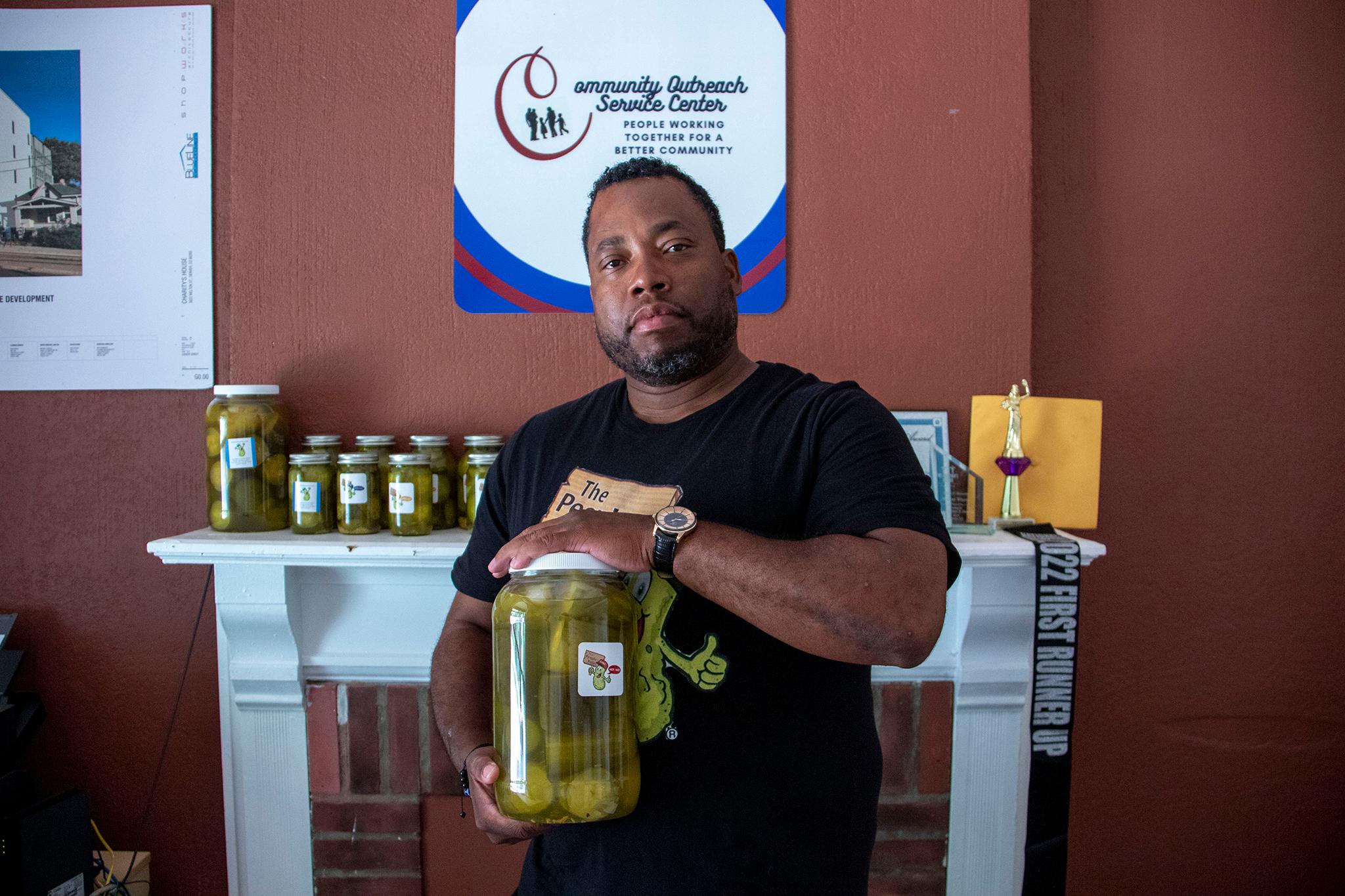
"There were three things I desired," Johnson said. "To heal Ms. Evans and her family for the pain that I caused them. To heal my family for the pain that I caused them. And with their healing, I could heal myself. I said if I never get out, at least I can live the best life I could live. I started reaching out to Ms. Evans and I wrote a letter to the best of my ability. I asked her to forgive me and to accept me."
Evans eventually did forgive Johnson and helped him get a shortened sentence. He was released in November 2021. He said Evans was there to greet him upon his release. She also later introduced Johnson to Weaver.
Johnson joined the People's Pickles program and now he's currently a peer navigator with the Outreach Center.
"Marcus gave me a chance," Johnson said. "He introduced me to things in life that I never thought I would see... I'm learning new skills and showing him I can do the job. And people in the program are seeing the work I'm doing and they get excited."
Weaver said Johnson is just one example of a person needing forgiveness and also a second chance. The pair do outreach together, tell their stories and sell pickles along the way.
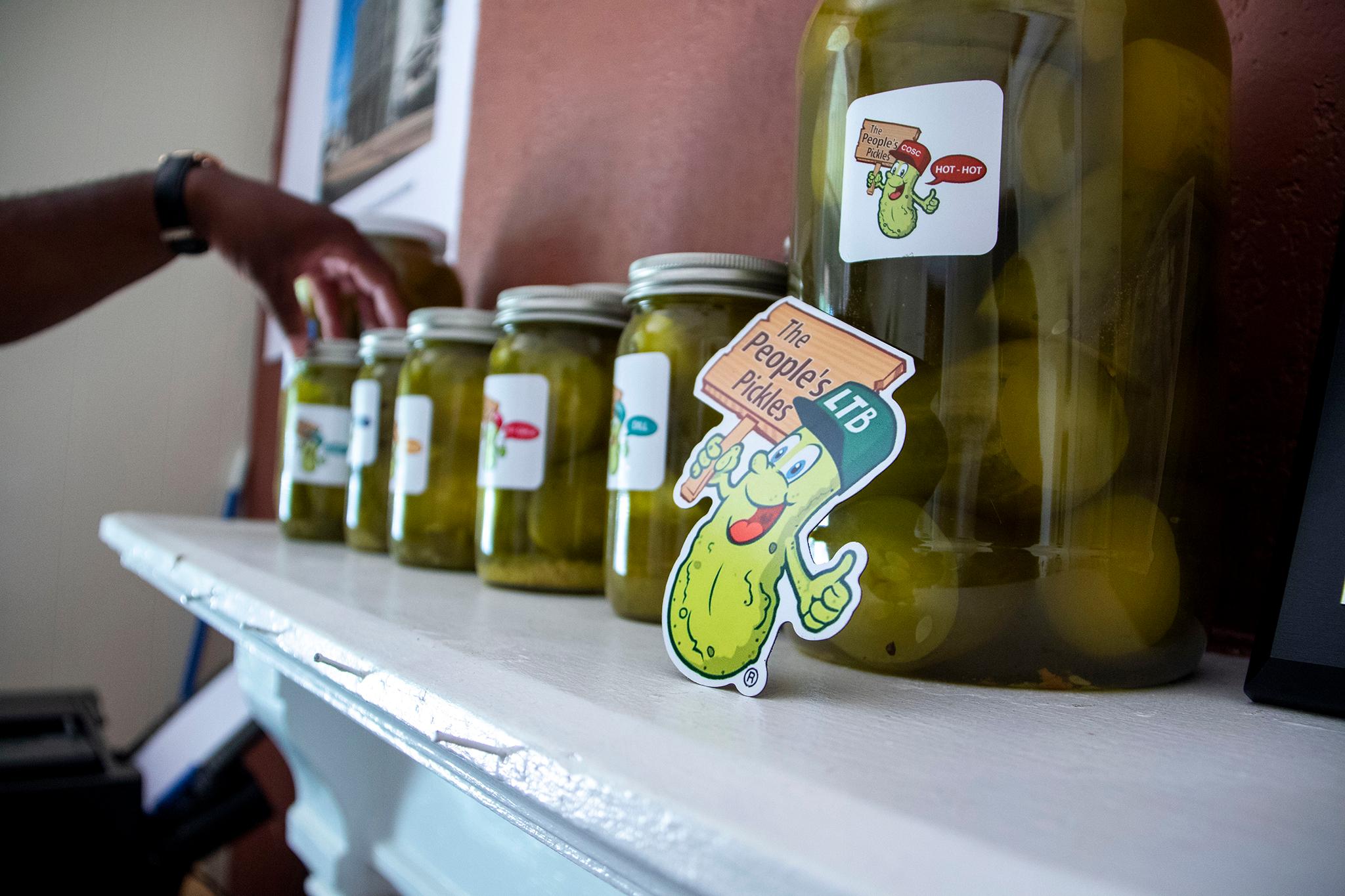
And they are definitely selling pickles. During the pandemic, Weaver said they started delivery and were selling 200 bottles a day. He said ultimately, they've been able to hire about 100 people over the past three years and move them into permanent jobs. He said their No. 1 seller is the simple dill, but the sweet hot gives you a sweet crisp bite before hitting you with a kick.
"I can't tell you what we use but it kicks," Weaver said.
Weaver and the crew can be found online and at different community events, including Black Dollar Saturdays at Brother Jeff's Cultural Center. Weaver also said they're working on getting a warehouse, a logo from StickerYou and he's hoping to sell the pickles at Safeway in the near future.
"Every mishap is not hazardous. It could be for your growth," Weaver said. "The goal is to hire people through transitional employment and move them into permanent employment. It's not going to happen overnight but we're going to support you. This next year is going to be our biggest year yet."
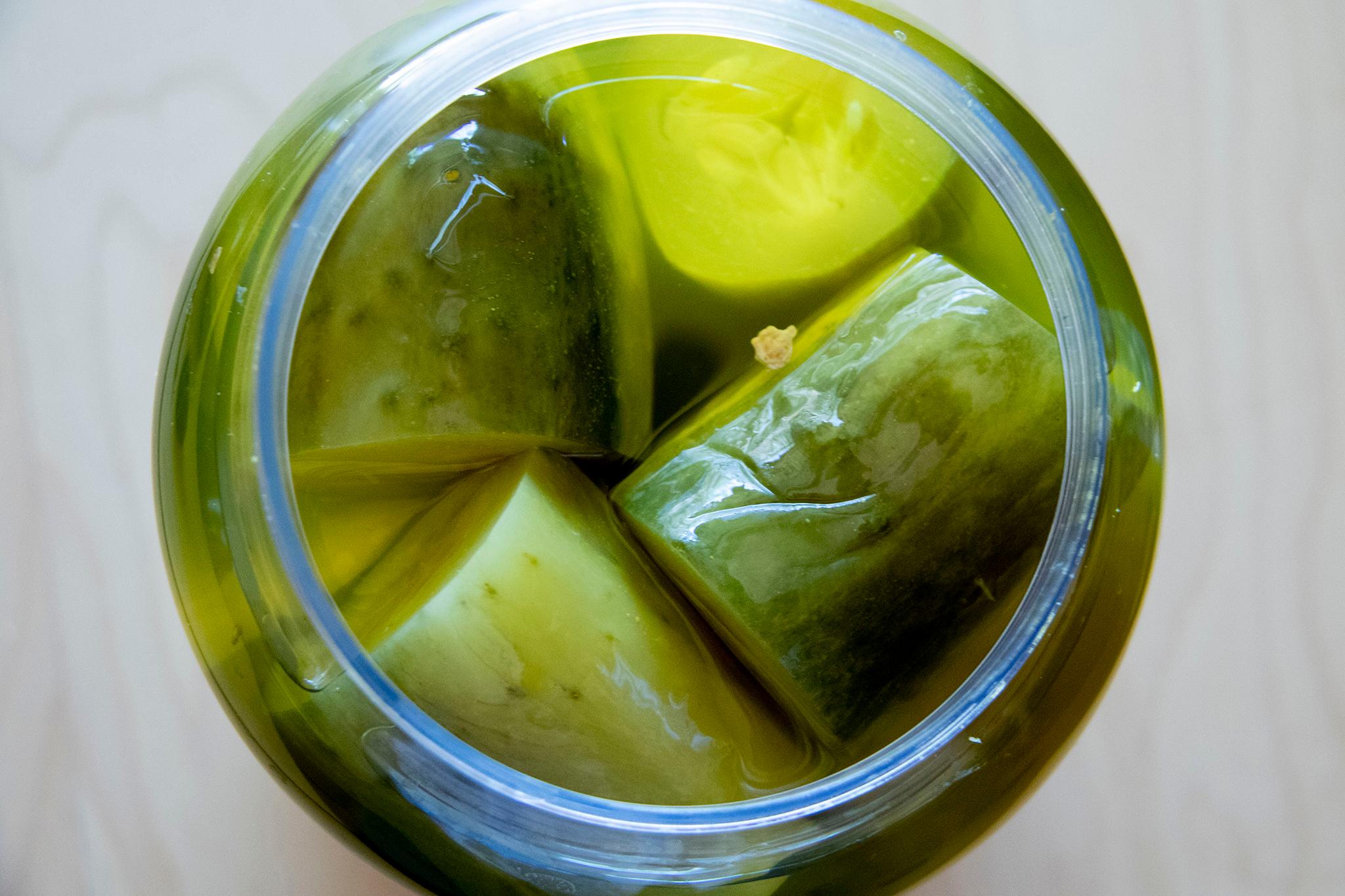
Correction: An earlier version of this story used the incorrect name for The People's Pickles.

